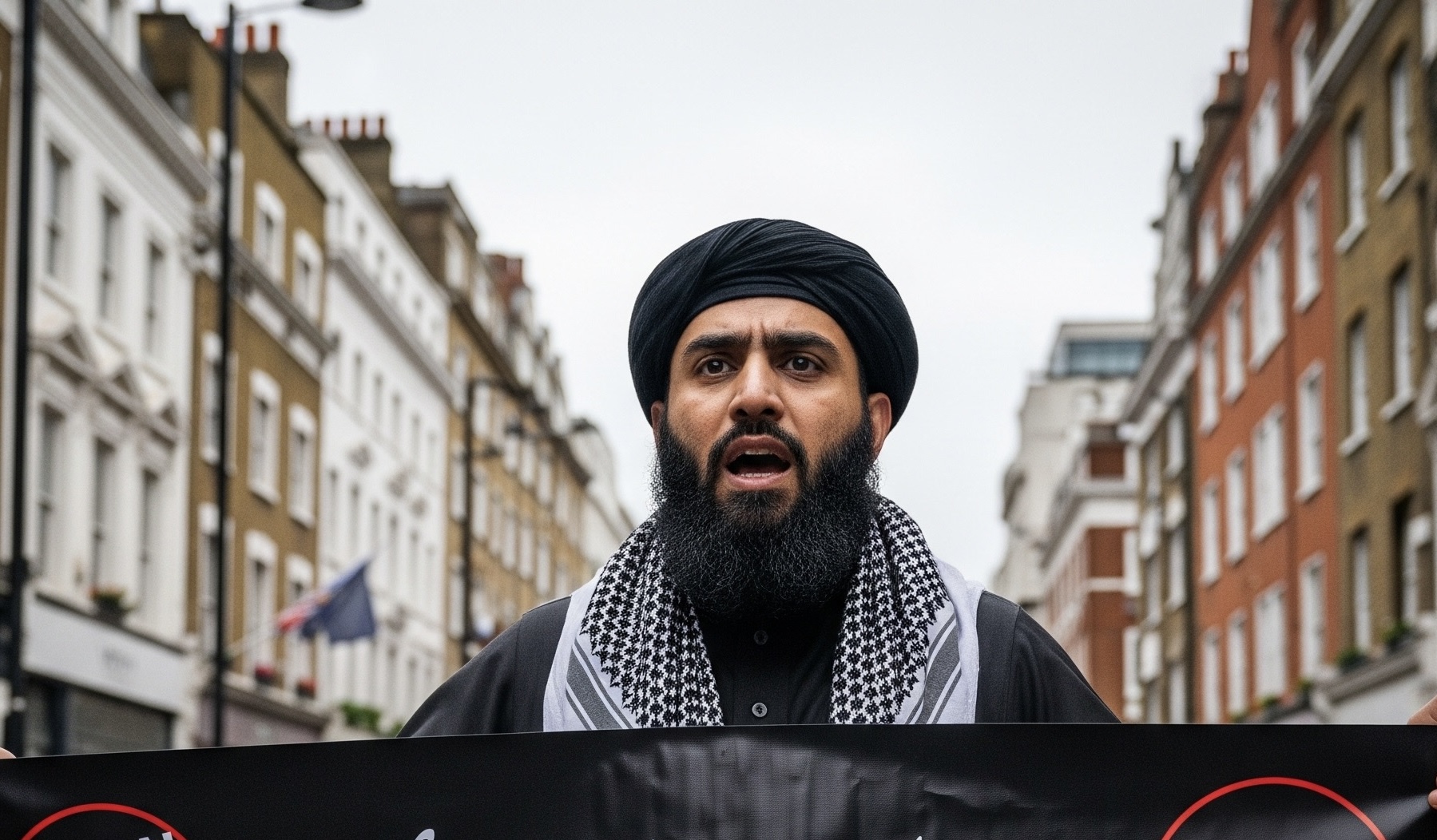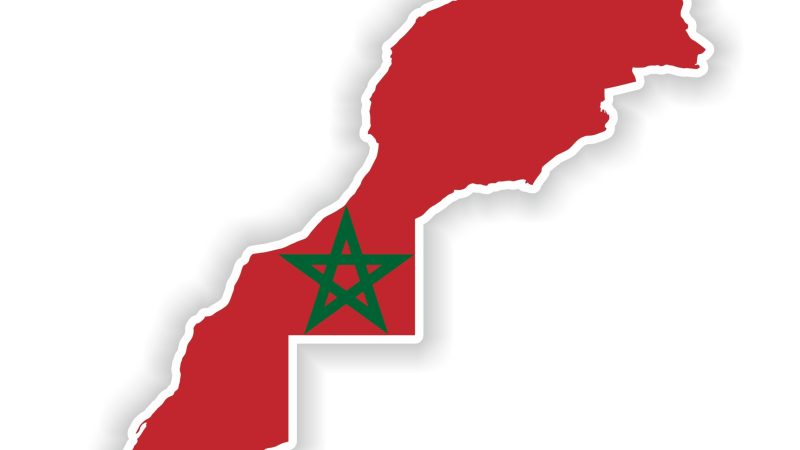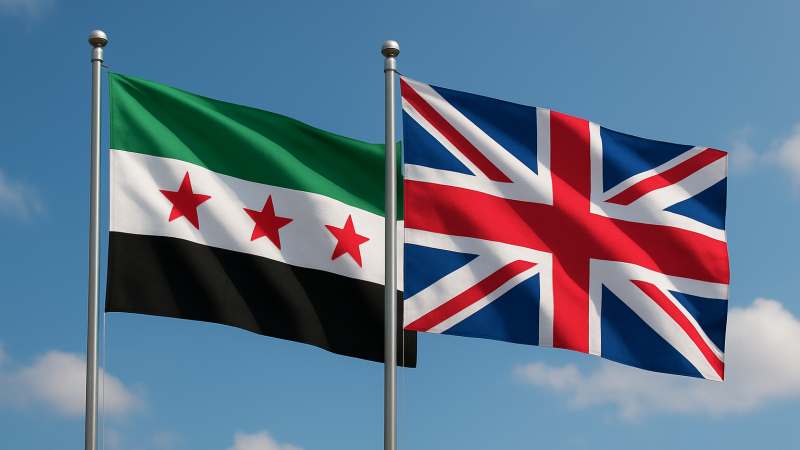Policy Brief: The Proscription of the Muslim Brotherhood in the UK

The Muslim Brotherhood, founded in Egypt in 1928 by Hassan al-Banna, represents one of the most influential Islamist movements globally. Its self-professed aim is the establishment of a state governed by Sharia law under a caliphate, encapsulated in its famous slogan, “Islam is the solution.” While the Brotherhood asserts itself as a peaceful, democratic organization, its historical trajectory, ideological underpinnings, and contemporary activities in the West have generated significant debate and controversy. This research by Global Arab Network will critically examine the presence and influence of the Muslim Brotherhood in the UK and other European countries, focusing on the arguments for the UK government to proscribe this organization as a terrorist entity, particularly in light of policies adopted by the UAE, GCC states, and Egypt.
I. The Muslim Brotherhood’s Ideology and Historical Context
The core ideology of the Muslim Brotherhood, particularly as articulated by Sayyid Qutb, one of its most influential thinkers, is often cited by critics as a foundational source of Islamist extremism. Qutb’s concept of Jahiliyyah (a state of pre-Islamic ignorance) applied not only to historical societies but also to contemporary Muslim-majority states and Western democracies, which he deemed “un-Islamic.” He advocated for a vanguard of true believers to establish an authentically Islamic community and state, viewing jihad as not solely spiritual or defensive. While the Brotherhood officially renounced violence in the 1970s, its history includes assassinations and attempted assassinations of Egyptian state figures, such as Prime Minister Mahmud El Nokrashi in 1948. Furthermore, groups like Hamas, whose military wing is proscribed in the UK, explicitly identify as the Palestinian chapter of the Muslim Brotherhood and continue to engage in violent activities.
Critics argue that even without direct involvement in terrorism, the Brotherhood’s ideology can create an environment conducive to radicalization. By fostering a “siege mentality” within Muslim communities, exaggerating anti-Muslim incidents, and portraying Western societies as decadent and hostile, they believe the Brotherhood contributes to a narrative that can justify extremist views and actions. The group’s foundational texts call for the progressive moral purification of individuals and Muslim societies and their eventual political unification in a Caliphate under Sharia law. This long-term objective is seen as fundamentally incompatible with liberal democratic principles.
II. The Muslim Brotherhood in the UK: A “Haven” for Influence?
The United Kingdom has historically maintained a more permissive stance towards the Muslim Brotherhood compared to many other nations. Unlike several Middle Eastern states, the Brotherhood is not proscribed as a terrorist organization in Britain, allowing its affiliated entities to operate legally. This position has drawn criticism, with some arguing that the UK has become a “haven” for the organization’s activities.
A key official examination of the Brotherhood’s presence in the UK was the 2015 government review, commissioned by then-Prime Minister David Cameron. The review concluded that while the Muslim Brotherhood had not been involved in direct acts of terrorism in the UK, its ideology and activities were a “possible indicator of extremism.” It highlighted that “individuals closely associated with the Muslim Brotherhood in the UK have supported suicide bombing and other attacks in Israel by Hamas,” further underscoring concerns about ideological alignment with proscribed groups. The review also noted the Brotherhood’s “deliberately opaque” and “habitually secretive” nature, making it challenging to fully ascertain its influence and networks.
Among the organizations identified in the 2015 review as being “dominated by the Muslim Brotherhood” was the Muslim Association of Britain (MAB). More recently, in March 2024, Communities Secretary Michael Gove named MAB as one of five groups to be assessed under a new government definition of extremism. While MAB consistently denies direct affiliation, critics contend that it works to subtly advance the Brotherhood’s long-term objectives.
The Brotherhood’s strategy in the UK often involves a “bottom-up” approach, embedding itself within Muslim communities through a network of seemingly innocuous associations, charities, mosques, and cultural groups. These entities provide various services, from counselling to sports instruction, often subtly integrating an Islamist worldview. The objective, according to some analyses, is to “slowly and imperceptibly re-organise society from the individual up, so that the acceptance of a need for an Islamic state governed by sharia (Islamic law) becomes widespread enough to implement and opposition to it is muted.” This clandestine approach, combined with the legal threshold for proscription in the UK, makes it difficult to directly link specific activities to a broader Brotherhood agenda that would justify a terror designation.
Concerns also extend to the financial networks supporting these organizations. While proving direct links can be challenging due to intricate precautionary measures, reports suggest that the Brotherhood’s financial strength in Europe comes from various sources, including charitable giving (zakat) and, historically, support from certain Arab countries.
III. The Muslim Brotherhood Across Europe: A Snapshot of Influence and Concerns
The Muslim Brotherhood’s presence and perceived influence vary across European countries, though a common thread is the challenge of accurately quantifying its reach due to its layered and often covert operations.
France: France has recently taken a particularly strong stance against what it perceives as the Muslim Brotherhood’s ideological infiltration. A significant 73-page report, declassified in May 2025 and commissioned by Interior Minister Bruno Retailleau, offers a detailed investigation into the Brotherhood’s presence and long-term strategy in France. The report estimates that approximately 7% of France’s 2,800 Muslim places of worship have links to the Muslim Brotherhood, impacting around 91,000 regular worshippers. It highlights the organization’s strong presence in cultural and sporting associations, and notably, its influence in schools.
The French report concludes that the Muslim Brotherhood movement poses a “threat to national cohesion,” spreading “political Islam” at local and municipal levels through a “solid structure.” Organizations like the Union of Islamic Organizations in France (UOIF), now known as “Muslims of France,” are identified as key ideological emissaries of the movement. The report details how the Brotherhood aims to establish “parallel Islamic ecosystems” and exert leverage via local European politics, potentially integrating candidates into mainstream parties to deliver Muslim votes in exchange for political concessions aligned with their Islamist agenda. French authorities are particularly alarmed by the Brotherhood’s alleged attempts to influence EU institutions through “significant lobbying activities,” often under the guise of combating Islamophobia, as reported by Politico EU in May 2025. Organizations like the Council of European Muslims (CEM) and the Forum of European Muslim Youth and Student Organisations (FEMYSO) are named in this context, with claims that they share the group’s ideology and have received funding from external sources.
Germany: German intelligence services also monitor groups associated with political Islam, including those influenced by the Muslim Brotherhood. While precise membership statistics are not as detailed as in the French report, internal intelligence reports, such as one released by the Bundesverfassungsschutz, have concluded that the Islamist organization poses “a greater threat to democracy than terrorist organizations such as Al-Qaeda or the ISIS.” The report indicated that around one-tenth of Germany’s mosques have been monitored for suspected extremist activities, with 16 mosques in North Rhine-Westphalia alone believed to be under the Muslim Brotherhood’s extremist influence. German intelligence also notes that the Brotherhood often presents itself as democratic towards European authorities, while its leaders may express more intolerant views to their followers in Arabic-language communications. The influx of refugees has also provided new avenues for the Brotherhood to expand its base in Germany.
Austria: Austria has taken a pioneering role in Europe by proactively countering political Islam. In June 2021, it became the first European nation to explicitly ban the Muslim Brotherhood as part of its anti-terrorism law. This designation followed extensive work by its Documentation Centre for Political Islam, established to expose the Brotherhood’s activities. The Austrian legislation aims for a definitive ban on “Islamic and anti-Semitic organizations,” explicitly naming the Muslim Brotherhood and its affiliated entities as primary targets. The Austrian government’s rationale stems from the belief that these organizations, often operating under neutral names as charities or educational institutions, serve a larger purpose of spreading Islamist ideology and altering the social and political structures of European countries.
Other EU Countries: The Muslim Brotherhood’s expansion into Europe dates back to the 1950s and 1960s, as members fled crackdowns in the Middle East. Belgium has also seen a historical presence. Across the continent, Brotherhood-linked activists have established front organizations to operate within society and advance their agenda without being easily recognized. The Council of European Muslims (CEM), based in Brussels, is alleged to coordinate the Brotherhood’s influence strategy across Europe, while FEMYSO (Forum of European Muslim Youth and Student Organisations) is cited as a “training structure” for high-potential executives of the movement. Despite growing concerns and some national actions, the majority of EU member nations remain hesitant to collectively designate the Muslim Brotherhood as a terrorist organization, with the designation still a subject of ongoing debate and differing legal interpretations across the bloc.
IV. The Resurgence of the Call for UK Proscription: Leveraging UAE, GCC, and Egypt Policy
The persistent concerns about the Muslim Brotherhood’s ideological influence and covert operations, coupled with the explicit proscription by the UAE, GCC states (Saudi Arabia, Bahrain), and Egypt, fuel a growing call for the UK government to follow suit and designate the organization as a terrorist entity. This alignment is argued to be a necessary step for several critical reasons:
- Confronting Ideological Subversion and Extremism: Critics argue that the Muslim Brotherhood’s “bottom-up” strategy of ideological infiltration, while not immediately violent, poses a long-term threat to democratic values and social cohesion. By gradually seeking to “re-organise society from the individual up” and promote the acceptance of Sharia law, the Brotherhood is perceived as undermining the liberal foundations of the UK. Proscribing the organization would send a clear message that the UK government recognizes and actively counters this form of ideological extremism, providing stronger legal tools to disrupt organizations that foster an environment conducive to radicalization, even if they do not directly engage in terrorism. The argument is that the Brotherhood’s ideological framework, particularly its non-disavowal of Sayyid Qutb’s teachings, contributes to a climate where violent extremism can flourish.
- Harmonizing Counter-Terrorism Efforts with Key Allies: The UAE, Saudi Arabia, Bahrain, and Egypt have designated the Muslim Brotherhood as a terrorist organization based on their national security assessments and experiences with the group. These nations view the Brotherhood as a direct threat to their stability and governance structures. Advocates for UK proscription argue that aligning with these key regional allies would strengthen international counter-terrorism efforts. It would prevent the UK from being perceived as a safe haven or a base of operations for groups outlawed in allied countries, thereby enhancing diplomatic cooperation and intelligence sharing on matters of national security. Furthermore, it would help to disrupt the financial and ideological networks that might connect Brotherhood-linked groups in the UK with those in the Middle East.
- Disrupting Covert Networks and Financial Flows: The Brotherhood’s “obsessive secrecy” and use of a wide array of front organizations, charities, and enterprises make it difficult to trace their full extent and financial flows. These entities often have “multiple parallel purposes,” allowing them to operate under the radar while advancing their dawah (proselytizing) efforts at a grassroots level. Proscription would equip UK authorities with enhanced powers to investigate, freeze assets, and disrupt the operations of entities linked to the Muslim Brotherhood, making it harder for them to raise funds and operate clandestinely. This aligns with a broader strategy of targeting not just those who commit acts of terror, but also those who “create the conditions for it to flourish,” as noted in the 2015 UK review.
- Protecting Vulnerable Communities and Promoting Integration: Proponents of proscription argue that it would serve as a vital measure to protect Muslim communities within the UK from extremist ideologies that can lead to isolation and radicalization. By discrediting the Muslim Brotherhood and its affiliated entities, the government could empower moderate voices within these communities and encourage greater integration into broader British society. The concern is that the Brotherhood’s totalizing project seeks to foster dependency on its own services, potentially reducing interaction with and reliance on state services, and in some cases, preventing individuals from fully accessing their rights within the UK legal framework.
Conclusion
The resurgence of calls for the UK government to proscribe the Muslim Brotherhood is driven by a convergence of factors: growing concerns about its deep-seated, long-term ideological project that conflicts with liberal democratic principles; the consistent and explicit proscription by key Middle Eastern allies like the UAE, GCC states, and Egypt; and mounting evidence from European counterparts, particularly France and Austria, regarding the Brotherhood’s pervasive and often covert influence.
While the legal and practical challenges of proscription in a democratic society remain significant, proponents argue that the strategic alignment with regional partners and the need to counter ideological subversion outweigh these concerns. The debate underscores the evolving nature of threats in the 21st century, where non-violent extremism and ideological influence are increasingly recognized as precursors to more tangible risks. Ultimately, the UK government faces a critical decision that will balance national security, international relations, and the protection of civil liberties, while addressing the complex and ever-changing landscape of Islamist movements in Europe.
The full detailed report:
We’re excited to announce that the full detailed report will be released after a series of insightful roundtables, the dates of which will be announced soon. To ensure you don’t miss any updates and to be informed as soon as the report is available, please subscribe to our newsletter.






